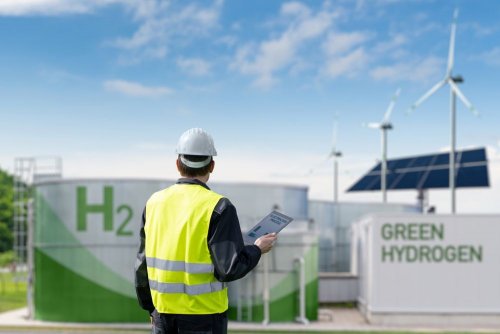In Europe, the decarbonization of industry has been intensified in recent years. Previously, many efforts were focused on the use of hydrogen in production. Now, large heat pumps have topped the list of initiatives aimed at reducing emissions from heating.
This is stated in an analytical material by Euractiv.
They are similar in principle to conventional heat pumps for houses or apartments, which use electricity to amplify ambient heat from the air, soil, or water. But unlike domestic models, industrial pumps are hundreds of times more powerful, cost millions of euros, and can produce heat with temperatures of up to 200 °C – provided a suitable heat source is used.
The industrial sector is one of the largest consumers of energy. Much of this demand is for temperatures below 200°C and is typically used in the production of steam for the chemical industry or for the paper drying process.
The Italian supplier Turboden has installed a 12 MW heat pump for a pulp and paper producer in Finland. The task of this pump is to increase the temperature of the emissions from the plant from 100°C to 170°C.
In Brussels, the focus was on the decarbonization of industry through the use of hydrogen. This technology is much better suited for obtaining the high temperatures required to provide 63% of industrial heat supply.
Unfortunately, industrial and domestic heat pumps have not received the same attention. Last December, the European Commission postponed proposals to accelerate the use of heat pumps.
"Large heat pumps are still struggling from an economic point of view," said Jan Rosenov, head of the Regulatory Assistance Project (RAP) clean energy research center in Europe.
He attributed their failure to two factors: "Low gas prices and high capital costs."
Although large heat pumps can be cheaper to operate than fossil fuel heat generation. But initial investment costs are usually higher.
According to Paolo Bertuzzi, in addition to industrial processes, interest in decarbonized heat is stimulated by two other key sectors:
- Centralized heating of residential areas. MAN is building a large-scale project with a capacity of 50 MW, which will provide heating for 25,000 houses in the Danish city of Esbjerg. The project will use seawater as a local heat source, raising the temperature before supplying hot water to homes.
- Carbon capture that requires environmental heat. Carbon capture projects have yet to be implemented at scale, but eventually heat pumps will produce the steam needed to activate critical chemicals.
"I don't know if 2024 will be the year of the launch of the large heat pump market, but there are definitely tenders already. At the moment, the main customers are utilities, which are able to spend money from the European recovery fund," says Bertuzzi.
What was once a niche interest is now becoming a massive business. Despite the existing obstacles, the future of large heat pumps looks promising.
As Ecopolitic previously wrote, the European Commission has approved €6.9 billion in state aid for 33 Hy2Infra hydrogen infrastructure projects in seven countries of the bloc, which became the third major project of common European interest (IPCEI).





